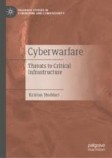Search
Search Results
-
Integration of Geographic Profiling with Forensic Intelligence to Target Serial Crime
A disproportionate number of crimes are attributable to a small fraction of criminal actors. Focusing resources to apprehend or disrupt serial (and...
-
Deaf Defendants and the Legal System
The legal system can be a confusing and challenging experience for the Deaf defendant. Very often Deaf defendants may be deprived of their civil and...
-
Whiteness in Forensics
Anthropology and genetics are two forensic disciplines in which race is inherently relevant and increasingly controversial. This chapter reviews the...
-
Understanding Deaf Culture, the Deaf Community, and American Sign Language in a Criminal Justice and Legal Context
Because culture and language often play such a crucial role in both the individual’s understanding of the world around them and their interactions...
-
Challenges, Possibilities, and Tensions When Investigating Child Sexual Abuse Against Preschoolers
Investigating and adjudicating sexual abuse against young children is a difficult task for the criminal justice system. The current chapter focuses...
-
Biology and Criminology: Data Practices and the Creation of Anatomic and Genomic Body ‘Types’
The use of biometrics for the creation of visual ‘body types’ needs continued criminological engagement. This article discusses Lombroso’s practice...
-
Sensory “Heteroglossia” and Social Control: Sensory Methodology and Method
Heteroglossia refers to the presence of multiple voices and views – exchanges that are central to the academic project (Bakhtin, The dialogic...
-
Partners in Criminology: Machine Learning and Network Science Reveal Missed Opportunities and Inequalities in the Study of Crime
ObjectivesResearch in criminology and criminal justice is a rapidly growing interdisciplinary, international network of intersecting research topics....

-
Electronic-Filing [Tax] Fraud in South Africa: Perceptive and Trends
This chapter compares existing perceptives and trends on investigations and prosecutions of electronic-Filing [e-Filling] (Tax) fraud in the...
-
Literature Review
This chapter provides a comprehensive overview of what is known about sibling sexual abuse from a literature base spanning 50 years. With the view of...
-

-
Neurodevelopmental disorders in youth justice: a systematic review of screening, assessment and interventions
ObjectivesThis study aims to systematically review screening and assessment approaches and therapeutic interventions for young people with...

-
Psychological Approaches to Detection of Deceit
In this supposedly ‘scientific age’, deception detection tests have been offered as a solution to the inadequacies of the Indian criminal justice...
-
Digital India: Cyber Governance, Policing and Diplomacy
The chapter deals with the aspects of Digital India, the pillars, cyber governance, cyber policing in the States and cyber diplomacy. In terms of...
-
Hacking the Human
Hacking the human has three main parts. The first part analyzes social engineering methods and practices. The second part is the world of...
-
Artificial Intelligence, Algorithmic Governance, and the Manufacturing of Suspicion and Risk
We turn to the ways in which securitized and criminalized compliance is being built into the hostile algorithmic architectures that increasingly seek...
-
The Critical Foundations of Visual Criminology: The State, Crisis, and the Sensory
This article considers the manner in which visual criminology has flourished in the current moment, while exploring its foundational relations and...
-

-
Working with Vulnerable Offenders
At the front end of the policing process, contact with and detention of offenders is one of the most important tip** points in policing...
-
Researching the Radical Right: Making Use of the Digital Space and Its Challenges
Radical right organisations like many other extremist communities have an increasingly prominent and active online presence, to the extent that some...
